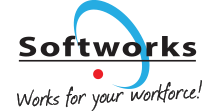Back in the day, when people were sick, they would just take a sick day, relax, and not worry about work. But now, with so many employees working remotely, it seems like many are soldiering on and working through their illness.
Before the pandemic, if someone was sick, they would stay home to avoid spreading germs and because their work equipment was at the office. But things have changed. If you’re not feeling too terrible and can still get out of bed, do you really need to call in sick?
This has sparked some debate lately, and it’s a dilemma for both employees and employers. That’s why Softworks decided to conduct a survey on remote working and sick days.
In this survey, we wanted to hear people’s opinions and thoughts on questions like:
- How sick do you have to be these days to take a “proper” sick day?
- Has it become harder for employees to take time off?
- Do employees still feel obligated to work even when they’re genuinely ill?
- Does a company’s culture influence whether an employee calls in sick?
- Is it time to review sick leave policies?
We ran the survey online from May to June 2023, reaching out to Softworks customers and followers through email and social media. We also partnered with several third-party publishers to distribute the survey. A total of 614 people responded, and we treated all responses anonymously.
We’re excited to share the survey results with you and want to express our gratitude to everyone who took the time to participate in the survey.
Demographics – Industry Breakdown
The survey was shared globally with 614 participants across all industry sectors.
31% of respondents came from workplaces with 100 employees or less, 30% had between 101 and 500 employees, 26% had between 501 and 5000 employees and 13% had over 5001 employees. The industries with the highest number of respondents were Healthcare (16%) followed by Manufacturing (12%), Non-Profit (9%), Finance (8%), and the Public Sector (8%).
WORKPLACE SIZE
INDUSTRY
In terms of job types, the majority of respondents worked in HR, Finance, IT, Operations, and General Management.
Key Findings
The respondents were asked a series of questions in regard to the sick leave policies. These are the key findings:
Sick leave policies need to be revised
Employees should not be working when sick
Employees should not be contactable if sick
We also asked how the employees feel when faced with the decision of whether or not to take a sick day.
Employees feel under pressure to work when sick
Employees find it harder to take a decision on sick days
Organisational culture affects employees taking a sick day
Working Remotely & Sick Days
When asked s if they thought remote working has made it harder for employees to make a decision regarding whether or not to take a “proper” sick day, 83% responded Yes.
Remote working has made it harder to take a decision on sick days
The high percentage of respondents acknowledging the difficulty in deciding on a “proper” sick day under remote work arrangements may indicate several factors at play. Remote work might blur the boundaries between work and personal life, making it more challenging for employees to disengage when they are feeling unwell. Additionally, concerns about job security or the fear of falling behind on work tasks while working remotely could contribute to this hesitation in taking time off.
Employers may need to provide clearer guidelines and communication about the importance of taking sick days when needed, even in a remote work setting, to ensure employees prioritize their health.
Is it time to make clearer boundaries, rules, and structures in relation to sick days?
A significant majority of respondents, comprising 85%, believe that it is necessary to establish clearer boundaries, rules, and structures in relation to sick days.
Employers may need to reassess and potentially update their sick leave policies to provide employees with more guidance and clarity, ensuring that employees feel supported in taking appropriate time off when they are genuinely unwell.
It is time to make clearer boundaries, rules, and structures
Summary
The world of work has undergone significant changes since the pandemic hit, and these changes have brought about both positive and negative outcomes. As we navigate this new landscape, it will take time for new policies and best practices to emerge, especially in relation to remote working and sick days.
Nevertheless, it is crucial for organizations to address this issue. While it may often rely on employees using their common sense to decide whether to work or take time off based on their symptoms, having clear policies in place can help eliminate any ambiguity and ensure that employees don’t feel pressured to work when they are genuinely unwell.
This boils down to effective communication and clarity between employers and employees. To retain valuable employees, organizations must foster a supportive culture that prioritizes their health and well-being. In our survey, a staggering 96% of respondents believe that an organization’s culture can influence whether employees take a proper sick day or continue working.
Numerous studies and research have shown that persistently working while sick can lead to decreased performance, burnout, and an increased risk of depression. If organizations want to avoid these negative consequences, they need to consider how their culture and actions regarding employee health and well-being impact their workforce in the long run.
This is a critical juncture to reassess and revamp sick leave policies that better support both organizations and their employees. There are many aspects to consider, and it presents an excellent opportunity to create a healthier and more supportive work environment.
As organizations reevaluate and revamp their sick leave policies during this critical juncture, incorporating absence management software can greatly support their efforts. The software provides valuable data that organizations can utilize to make informed decisions when designing new and improved sick leave policies.
Request a free Demo!
Take the first step towards a complete workforce management solution. Talk to us today!
About Tomislav Rucevic
Tomislav Rucevic, an SEO Specialist at Softworks, stands out as more than just a marketer. He’s a fervent writer and influential thinker passionate about Workforce Management, HR, and work-life dynamics. Holding an MBA in Marketing, Tomislav excels in creating content that delves into the complexities of the modern workplace.
His dedication to writing on these topics is highlighted in his MBA thesis, which examined the link between Employee Motivation and Quality Improvement. At Softworks, he expertly merges his SEO skills with his writing prowess, contributing to the company’s digital success and advancing discussions on enhancing work environments and achieving work-life balance.









